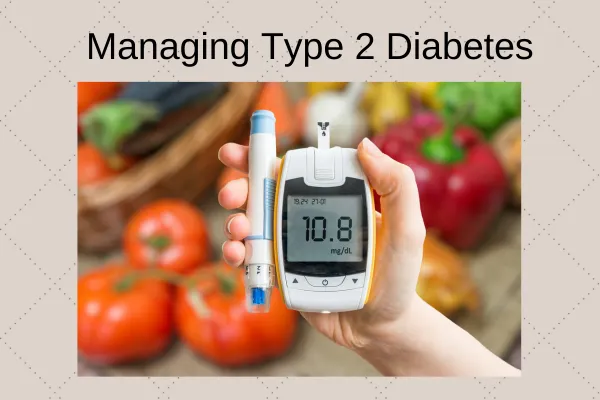
Managing Type 2 Diabetes
A Comprehensive Guide to Managing Type 2 Diabetes Through Functional Health
When you're first diagnosed with Type 2 diabetes, it’s normal to feel overwhelmed. But ignoring the diagnosis won’t make it go away. Taking it as a wake-up call can be a turning point—one that leads to better health, energy, and quality of life.
Why High Blood Sugar Is So Dangerous
Unchecked high blood sugar can lead to long-term damage. One of the most serious risks is cardiovascular disease, which is the top cause of death among people with diabetes. You’re up to four times more likely to have a heart attack or stroke if you have diabetes. Other dangers include vision loss, kidney failure, and nerve damage.
Why Medication Isn’t Enough
Medications help, but they’re only one piece of the puzzle. A healthy diet and regular movement often have a bigger impact. Functional medicine emphasizes that you can’t out-medicate poor habits. Sustainable change happens when you build daily routines that support your body’s natural healing systems.
A Functional Medicine Approach to Diabetes
Functional medicine looks at root causes—not just symptoms. Here’s how it supports blood sugar control and better health:
Smart Nutrition: A low-glycemic, high-fiber diet can stabilize blood sugar and lower inflammation. Focus on non-starchy veggies, lean proteins, healthy fats, and minimal added sugars or processed foods.
Move Your Body: Mix cardio (like brisk walking) with strength training and flexibility work. This improves how your body uses insulin.
Tackle Insulin Resistance: Many people with Type 2 diabetes have insulin resistance. Functional medicine addresses this through food, exercise, and gut health—not just medications.
Support the Mind-Body Connection: Stress raises blood sugar. Practices like deep breathing, meditation, yoga, or journaling help you regulate cortisol levels and reduce emotional eating.
Targeted Supplementation: Nutrients like magnesium, chromium, and cinnamon may help support insulin sensitivity—but always work with your provider before adding new supplements.
Personalized Plans: There’s no cookie-cutter solution. Functional medicine is tailored to your health history, goals, and lab results.
Simple Changes to Start Today
Learn More: Education is power. Understanding your condition helps you make informed choices.
Eat for Blood Sugar Balance: Cut sugary drinks and ultra-processed carbs. Add fiber-rich veggies and healthy fats.
Move More: Aim for at least 30 minutes a day, five days a week.
Stress Less: Try stretching, journaling, or 5 minutes of deep breathing daily.
Check In With Your Team: Keep up with appointments and lab tests to adjust your care plan.
Berberine: A Natural Ally
Berberine is a plant compound that may help manage blood sugar. Research shows it:
Improves insulin sensitivity
Reduces sugar production in the liver
Promotes sugar breakdown in cells
Slows carbohydrate digestion
Supports gut microbiome health
Studies support its use:
A 2008 meta-analysis found berberine worked as well as metformin for blood sugar control.
Research in the Journal of Clinical Endocrinology & Metabolism showed reduced fasting glucose and insulin levels.
Combined with lifestyle changes, it improved glucose and lipid metabolism.
Typical dose: 900–1500 mg/day in divided doses. Start low, and take with meals. Always consult your provider.
Other Helpful Supplements
Alpha-Lipoic Acid (ALA)
Improves insulin sensitivity and may reduce nerve pain.
Diabetes Care found benefits for diabetic neuropathy.
Chromium
Supports fat and carb metabolism; helps insulin work better.
Some trials show lower glucose and improved tolerance.
Magnesium
Crucial for glucose control. Many with diabetes are deficient.
Studies show it improves insulin sensitivity.
Omega-3 Fatty Acids
Reduce inflammation and improve triglycerides.
Linked to better heart health in diabetes.
Cinnamon
May lower blood sugar and boost insulin action.
Several studies show reductions in fasting glucose.
Vitamin D
Low levels linked to insulin resistance.
Supplementation may improve blood sugar.
B Vitamins (B1 and B12)
Support nerve health and may help prevent or relieve neuropathy.
Note: Supplements should never replace medication. Talk to a qualified provider before starting anything new.
Final Thoughts
Managing Type 2 diabetes can feel like a full-time job—but functional health gives you tools to simplify and succeed. You’re not just managing a diagnosis—you’re building a healthier, stronger you.
References
Yin, J., Xing, H., & Ye, J. (2008). Metabolism.
Zhang, H., et al. (2010). Journal of Clinical Endocrinology & Metabolism.
Dong, H., et al. (2012). Evidence-Based Complementary and Alternative Medicine.
Ziegler, D., et al. (2006). Diabetes Care.
Broadhurst, C. L., & Domenico, P. (2006). Diabetes Technology & Therapeutics.
Barbagallo, M., & Dominguez, L. J. (2007). World Journal of Diabetes.
Hartweg, J., et al. (2008). Cochrane Database of Systematic Reviews.
Khan, A., et al. (2003). Diabetes Care.
Pittas, A. G., et al. (2007). Journal of Clinical Endocrinology & Metabolism.
Thornalley, P. J. (2007). Journal of Diabetes.
